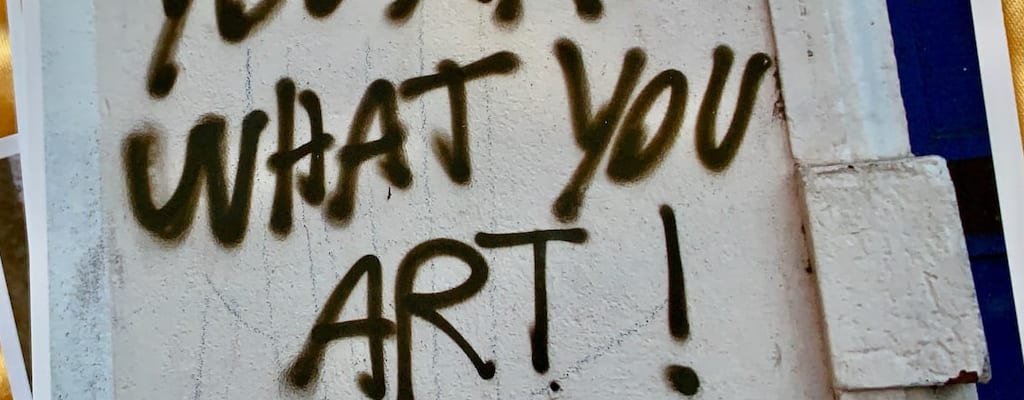inside joke: Idiom Meaning and Origin
What does ‘inside joke’ mean?
An "inside joke" is a humorous reference or remark that is understood only by a specific group of people who know the context behind it.

Idiom Explorer
The idiom "legend in one's own lunchtime" refers to a person who is only considered important or famous within a specific limited context or group, but lacks recognition or respect in a broader or more significant setting.
The idiom *laugh up one's sleeve* means to secretly find amusement or satisfaction in a situation without showing it openly. It implies a hidden or sly sense of humor.
The idiom "laugh in one's sleeve" means to secretly or quietly find something amusing or funny without showing it openly.
The idiom "laugh a minute" refers to someone or something that is consistently funny or amusing, providing frequent moments of laughter.
When someone says they "know someone," it means they are acquainted or familiar with that person. It implies a level of personal connection or understanding between the two individuals.
Idiom: know inside and out
Meaning: To know something very well or fully understand it
The idiom "knee slapper" refers to a joke or humorous situation that is extremely funny, causing someone to slap their knee in laughter.
When someone is "in stitches," it means they are uncontrollably laughing or finding something extremely amusing.
The idiom "inside the box" means to think or act in a conventional or limited way, conforming to established rules or norms.
The idiom "inside job" refers to a crime or wrongdoing that is committed by someone within an organization or group, often involving betrayal of trust or abuse of power.
The Hidden Language
An inside joke is a phrase, gesture, or reference that is understood by a specific group of people who share a common background or experience. It is a form of humor or communication that excludes those who are not part of the group.
The origin of the term "inside joke" is unclear, but it is believed to have emerged in the early 20th century. The word "inside" refers to the exclusivity of the joke, as it is meant to be understood only by a select few.
Inside jokes often develop within close-knit communities such as families, groups of friends, or colleagues. They form through shared experiences, conversations, or memorable moments that create a bond among the members. These jokes can take various forms, including linguistic phrases, references to specific events, or physical gestures. They are a way for the group to connect and reinforce their sense of belonging.
Part of the appeal of inside jokes is the feeling of membership and understanding they provide. By being in on the joke, individuals feel a sense of inclusion and camaraderie with others who also understand the reference. Inside jokes can serve as a powerful social marker, distinguishing those who are part of the group from outsiders.
Inside jokes often have a short shelf life, as they are tied to specific moments or contexts that may lose relevance over time. However, some inside jokes have gained a wider reach and become cultural phenomena, spreading beyond their original group to larger communities. These jokes can have a lasting impact and become part of the collective consciousness.
With the advent of the internet and social media, inside jokes have taken on a new dimension. Memes, viral videos, and shared content have become the breeding ground for inside jokes that quickly spread and become part of popular culture. They have become a way for people to connect and find common ground through humor.
This idea of exclusivity and inside knowledge extends beyond just jokes. The idiom "inside baseball" is often used to refer to knowledge or information that is known only within a specific group or industry. It originates from the sport of baseball, where players and coaches have a deep understanding of the game's intricacies that may be unknown to casual observers. This idiom highlights the idea that certain knowledge or information is reserved for those who are part of the "inner circle."
The idiom "inner circle" refers to a close-knit group of people who hold power or influence within a larger organization or community. This group has access to information, decision-making processes, and opportunities that may be off-limits to outsiders. Similar to inside jokes, the concept of the inner circle creates a sense of exclusivity and can reinforce social hierarchies.
Inside jokes, "inside baseball," and the "inner circle" are all examples of how language and culture develop within specific communities. They serve as a way for people to connect, create shared meaning, and reinforce their sense of belonging. While inside jokes can be exclusionary, they also have the power to foster strong bonds among individuals who understand and appreciate them. In the same way, knowledge and access to information within the "inner circle" can create a sense of privilege and camaraderie among its members.
Overall, inside jokes are a form of communication and humor that are understood only by a select group of people. They can develop within families, friend groups, or communities and are created through shared experiences or references. While inside jokes can create a sense of belonging and camaraderie, they can also be exclusionary and reinforce social hierarchies. Similarly, the idioms "inside baseball" and "inner circle" relate to the idea of exclusivity and insider knowledge within specific groups or industries.
Example usage
- Every time we hang out, they always make these inside jokes that I don't understand.
- The comedian told an inside joke that only a few people in the audience got, but they found it hilarious.
- My sister and I have so many inside jokes that whenever we're together, we can't stop laughing.
The idiom "inside joke" refers to a joke, reference, or phrase that is understood or amusing only to a select group of people who have prior knowledge or shared experiences. It often excludes individuals who are not part of that particular group, leading them to feel left out or confused. Inside jokes can arise among friends, coworkers, or people who frequently interact with each other. They can be formed based on previous shared experiences, common interests, or shared language. Inside jokes can create a sense of camaraderie and closeness among the group of people who share them. They are a way of reinforcing social bonds and creating a sense of belonging within a specific community. Inside jokes can be used in casual conversations, social gatherings, or even in entertainment such as comedy shows or sitcoms. Overall, inside jokes serve as a form of exclusive humor that strengthens relationships and fosters a sense of unity among a select group of individuals.
More "humor" idioms



